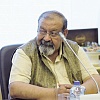From Sochi to Singapore Modi asserts India's strategic autonomy
In
Log in if you are already registered
The Sochi summit between Indian Prime Minister Narendra Modi and Russian President Vladimir Putin, no doubt, was a moment of truth in bilateral relations, which last year clocked 70 years and many sceptics in India thought it was time to retire them and join the rich Western camp.
Though it was said to be an "agenda-less" summit, but its agenda was thoroughly prepared by National Security Advisor Ajit Doval and Foreign Secretary Vijay Gokhale, who earlier on May 10 visited Moscow for high profile talks with the Kremlin Security Council's Secretary Nikolai Patrushev and Foreign Minister Sergei Lavrov.
It is noteworthy that India wasted no time in establishing closest possible contacts with the Kremlin shortly after President Putin took the oath of office for his fourth and presumed to be last six year term. At a time when the global and regional disruptions have become a new normal, when the apex UN body - Security Council is in disarray, when three of its permanent members are in direct confrontation with its another member Russia, New Delhi's stakes to attain the great power status are in jeopardy, the relations between the two nations have acquired a new momentum, which should be maintained by involving more stakeholders, other than arms producers in Russia and their users in India.
However, today the defence cooperation and hi-end arms acquisitions remain the main pillar of bilateral strategic 'privileged' partnership between India and Russia and New Delhi's ability to withstand the threat of US CAATSA sanctions became a 'litmus test' of its strategic autonomy.
The US "Countering America's Adversaries Through Sanctions Act"(CAATSA) signed into law by President Donald Trump in August 2017 to punish the Kremlin was believed to be the main issue at the summit during the Indian leader's day long "working visit" to Sochi.
Although, the official statements from both sides had no direct reference to the issue of S-400 air defence systems or other arms deals with Moscow. But officials in New Delhi, including Defence Minister Nirmala Sitharaman declared that big-ticket arms deals with Russia will not be deterred by the secondary sanctions under CAATSA. It is also presumed that India will not be satisfied with conditional waivers as they will come with riders and affect the country's sovereign rights in taking independent decisions.
In his keynote address at the high profile Shangri La Dialogue in Singapore on June 1 Prime Minister Modi declared: " It is a measure of our strategic autonomy that India’s Strategic Partnership, with Russia, has matured to be special and privileged. Ten days ago in an informal summit at Sochi, President Putin and I shared our views on the need for a strong multi-polar world order for dealing with the challenges of our times."
On completing four years of its five-year term earlier in May the BJP-led National Democratic Alliance government and its Prime Minister Modi may be under scathing attack at home from his political opponents, but there could be little objective criticism of his dynamic foreign policy aimed at securing India its rightful place at the high table of great powers in the rapidly changing world order.




